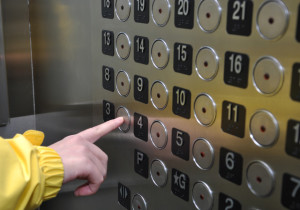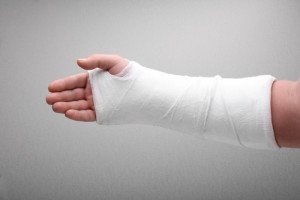Elevator and Escalator Accidents
 Elevators and escalators are excellent forms of transport within buildings with multiple floors. They prevent a person from having to walk up stairs, which is ideal for the elderly, disabled, and anyone looking for more convenience in their life. Most of the time, they work the way they were designed to. However, there are other times when they don’t.
Elevators and escalators are excellent forms of transport within buildings with multiple floors. They prevent a person from having to walk up stairs, which is ideal for the elderly, disabled, and anyone looking for more convenience in their life. Most of the time, they work the way they were designed to. However, there are other times when they don’t.
If you or a loved one has been injured because of elevator or escalator failure that is the fault of the parties that are supposed to be preventing such accidents, you may have a personal injury case. At Brotherly Law, we will evaluate and investigate what occurred and why it happened so we can build a strong case for you in an effort to secure compensation for medical expenses, lost wages, and pain and suffering.
Escalator Falls
Escalators and moving walkways are very useful, especially in shopping malls where you may have your hands full. They are especially beneficial to those with disabilities, allowing them to get around in places they wouldn’t be able to otherwise. Unfortunately, with escalators and moving walkways comes the potential for injuries.
Although falls on escalators happen every day, not all of them are the result of another party’s negligence. Some individuals simply lose their footing and they fall. Sometimes riding an escalator or moving walkway is a balancing act and some people are better at it than others.
Nonetheless, an escalator that stops functioning properly, doesn’t have the proper safety precautions in place, has a slippery surface without the necessary warnings posted, or has another hazard in the way could be a liability issue for the building owner. Perhaps the escalator caught the clothing of a rider when it shouldn’t have. Maybe it started traveling too fast and caused a person to fall. There are different forms of negligence that exist, but they all can result in these types of injuries:
- Broken foot or ankle
- Head injuries, including traumatic brain injury
- Back and spinal injuries
- Hand and arm injuries
- Broken hip
- Broken leg
- Neck injuries
How serious the injury is depends on what happened. For example, an escalator coming to an abrupt stop while a rider is at the top can cause that rider to fall all the way down to the bottom. Such a fall can lead to very serious head, back, and neck injuries, as well as broken bones.
Elevator Accidents
It is true that a poorly maintained elevator could fall, but that is not something that is very common. Generally, elevators are considered safer than stairs, but when they malfunction they can cause the occupants to sustain serious injuries. For instance, an elevator that suddenly drops a short distance can cause the occupants to temporarily become airborne. This means they are going to fall hard to the floor of the elevator and also collide with each other.
Some of the common injuries associated with elevator accidents include head injuries, sprains, broken legs, and broken arms. If an elevator is stuck between floors and the occupants must climb out, injuries could be sustained in this situation as well. However, injuries sustained from being saved from an elevator may not warrant an injury lawsuit.
While there isn’t much that can happen in an elevator, the results of an accident can be serious. Common reasons for elevator accidents include:
- Improper maintenance
- Faulty elevator design
- A malfunctioning emergency stop button
- No visible signs indicating the weight limit
- Proper warnings not placed on a broken elevator
- Elevator alignment issues
- Faulty or worn cables
More than one party can be held liable for these insufficiencies. Your attorney will thoroughly investigate so that all negligent parties can be named in your personal injury claim. That way you can maximize your compensation and focus on recovery.
A Philadelphia Slip and Fall Attorney can Secure Satisfactory Results
Elevators and escalators are in many places in Philadelphia. Some are maintained the way they are supposed to be, while others aren’t. Anytime there is some kind of negligence that leads to an elevator or escalator fall, it is important that the negligent party be held responsible. If you have been injured because of an elevator or escalator issue, you may be able to file an injury lawsuit. To determine if you have grounds for a lawsuit, call Brotherly Law at (215) 545-8500 or contact us online to schedule your free consultation.
Request A Free Consultation
If you have been injured due to no fault of your own, you may be able to hold the responsible party accountable for the monetary damages resulting from the accident. Fill out the form below to request a free consultation so we can evaluate your case.
